5 Essential Tips to Nail the Perfect Tandoori Masala Chicken (And a Few Spicy Secrets)
Description
If you’ve ever bitten into a perfectly charred, spice-rubbed tandoori chicken leg and wondered how on earth it got so flavorful — welcome to the club. This isn’t just any spice blend; tandoori masala is a culinary love letter from India to your taste buds. In this article, we’re not only giving you the essential tips to make killer tandoori masala chicken, but also diving deep into what makes this spice mix a global favorite in the Global Spice Traditions series.
Table of Contents
- Introduction: The Charcoal Charm of Tandoori Masala
- Top 5 Tandoori Masala Chicken Tips
- Deep Dive: What’s Inside That Red Dust?
- Spice Comparison Table
- Pro Tips: From Marination to Char
- Myth Busting: Is Tandoori Masala Really Indian?
- Conclusion: Your Kitchen Can Be a Mini Tandoor
Introduction: The Charcoal Charm of Tandoori Masala
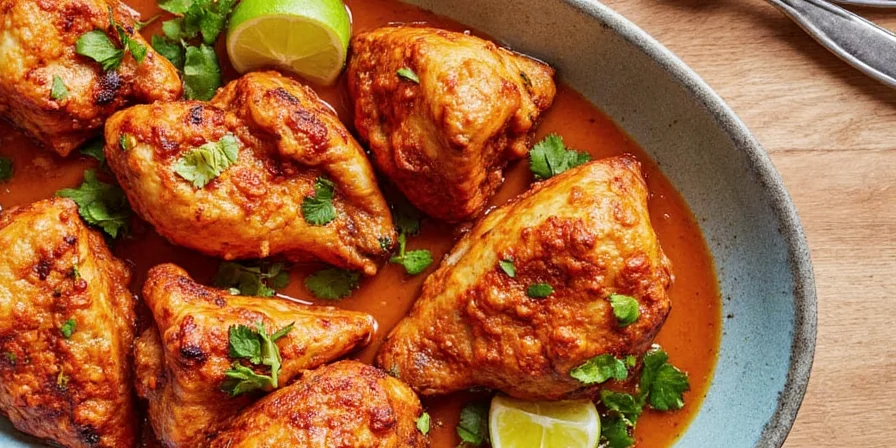
Tandoori masala isn't just a spice blend — it's a lifestyle. Or at least, it should be. Originating from North India and traditionally cooked in a clay oven called a tandoor, tandoori chicken is famous for its vibrant red color, smoky aroma, and bold flavor profile. Whether you're grilling outdoors or using your oven's broiler, mastering this iconic dish starts with understanding the spices behind the magic.
Top 5 Tandoori Masala Chicken Tips
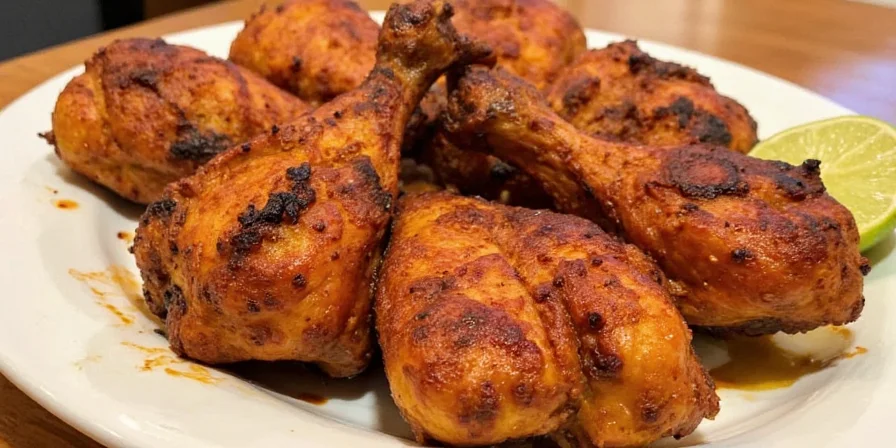
- 1. Fresh Spices = Happy Taste Buds: Don’t use that cumin powder from 2017. Grind whole spices fresh if possible. Trust us, your nose will thank you.
- 2. Yogurt is Your Best Friend: A yogurt-based marinade tenderizes the chicken and helps the spices stick like glue — but without the guilt.
- 3. Rest Time Matters: Letting the chicken sit in the fridge for 6–24 hours allows the flavors to penetrate deeply. Think of it as a spa day for your meat.
- 4. Char is King: If you can’t get a real tandoor, a cast iron skillet or grill will do. Sear it until it sings — literally, like, “I’m done and delicious.”
- 5. Garnish Like You Mean It: Lemon wedges, chopped cilantro, and sliced onions aren’t optional — they’re part of the experience.
Deep Dive: What’s Inside That Red Dust?
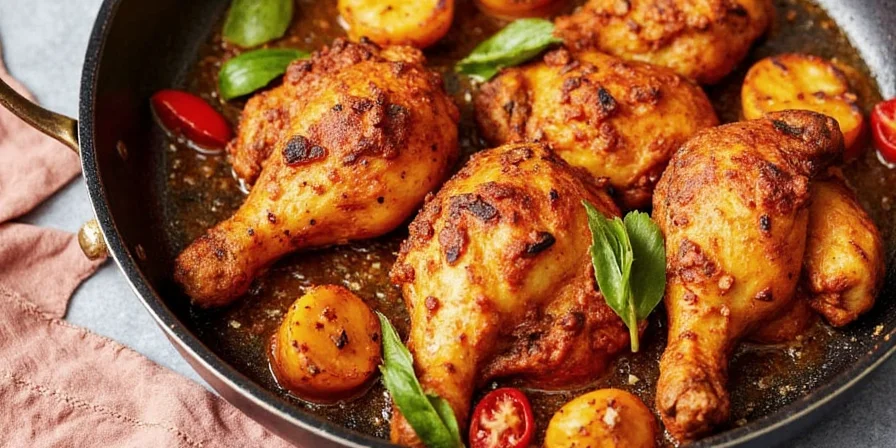
The beauty of tandoori masala lies in its balance — earthy, spicy, aromatic, and slightly sweet all at once. Here’s a breakdown of the typical suspects:
- Kashmiri Chili: Adds heat without taking over — and gives that signature red hue.
- Cumin: Earthy and nutty, the backbone of most Indian spice blends.
- Coriander Seeds: Mildly citrusy, these add brightness.
- Cardamom: Floral and fragrant — the unsung hero of the mix.
- Cinnamon & Clove: Warm, sweet notes that deepen the flavor.
- Fenugreek: Adds a subtle bitterness and complexity.
- Turmeric: For color and anti-inflammatory vibes (just kidding… kind of).
Spice Comparison Table
| Spice | Flavor Profile | Heat Level (1-10) | Main Role |
|---|---|---|---|
| Kashmiri Chili | Mild heat, bright red color | 4 | Color & subtle kick |
| Cumin | Earthy, warm | 0 | Base layer |
| Coriander Seed | Citrusy, nutty | 0 | Brightness |
| Cardamom | Floral, aromatic | 0 | Depth |
| Cinnamon | Sweet, woody | 0 | Warmth |
| Clove | Intense, sharp | 0 | Complexity |
| Fenugreek | Bitter, maple-like | 0 | Unique depth |
| Turmeric | Earthy, slightly bitter | 0 | Color & health boost |
Pro Tips: From Marination to Char
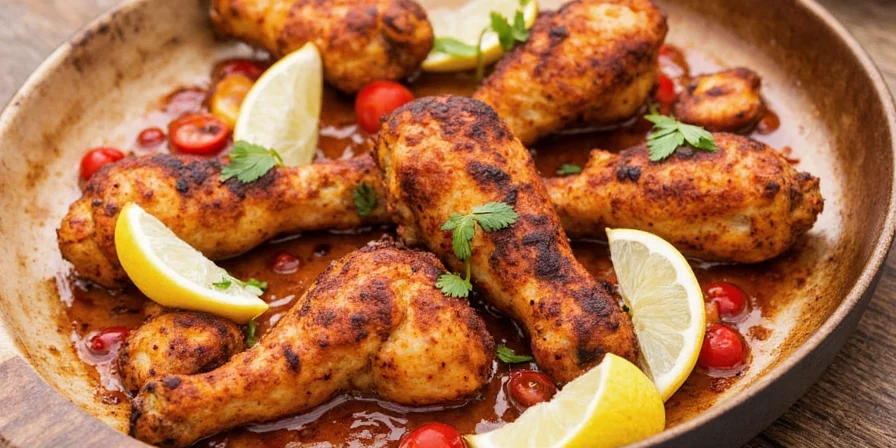
- Use Bone-in Chicken: Thighs with bone-in stay juicier and absorb more flavor than boneless cuts.
- Don’t Skip the Garlic & Ginger: These are non-negotiable. They’re the dynamic duo of Indian cuisine.
- Add a Dash of Vinegar or Lemon Juice: Helps break down proteins and enhances flavor penetration.
- Broil it Like You Mean It: High heat creates that tandoor-like char without the actual oven. Rotate the chicken halfway through for even browning.
- Rest Before Serving: Letting it rest ensures juices redistribute — no dry bites here!
Myth Busting: Is Tandoori Masala Really Indian?
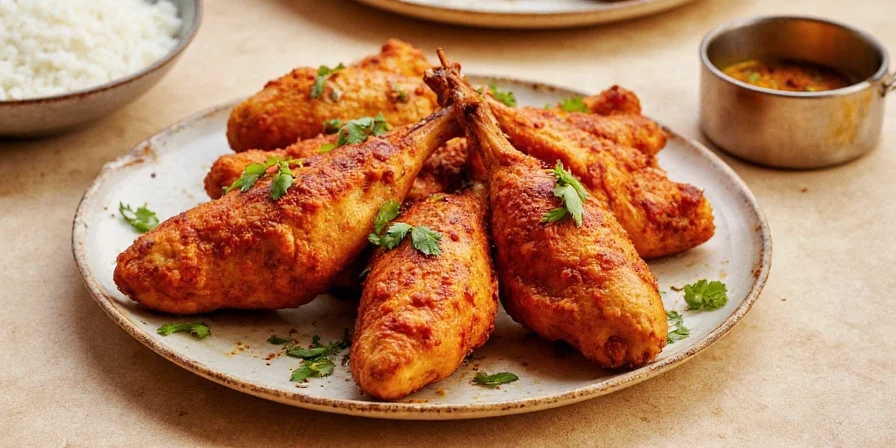
Short answer: Yes. Long answer: Tandoori masala was born in Punjab and popularized by restaurants in Delhi during the mid-20th century. However, regional variations exist across India and beyond. Some blends include garam masala as a base; others use more Kashmiri chili for a redder finish. And yes, it’s now a staple in many fusion cuisines around the globe — from London kebab shops to New York street food trucks.
Conclusion: Your Kitchen Can Be a Mini Tandoor
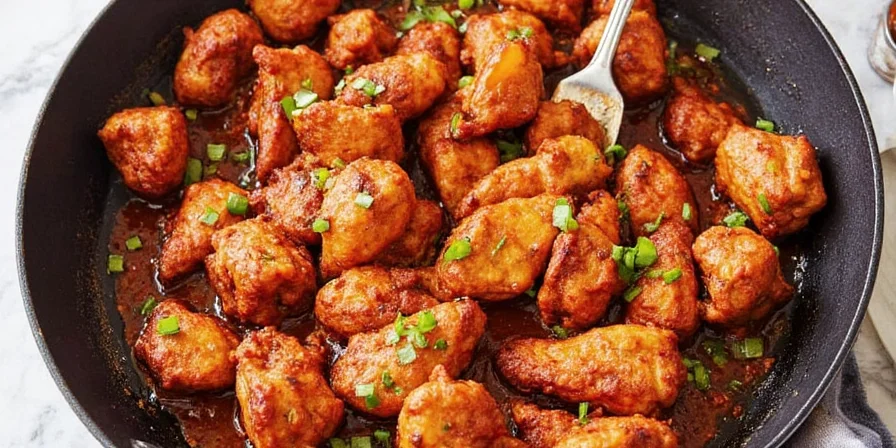
Tandoori masala isn’t just a seasoning — it’s an invitation to a flavor party. With a few simple tricks and a dash of patience, you can bring that authentic smoky, spiced goodness straight from your kitchen to your plate. So fire up the grill, marinate like a pro, and don’t forget to garnish like your reputation depends on it — because in the world of tandoori masala for chicken, presentation is half the fun.

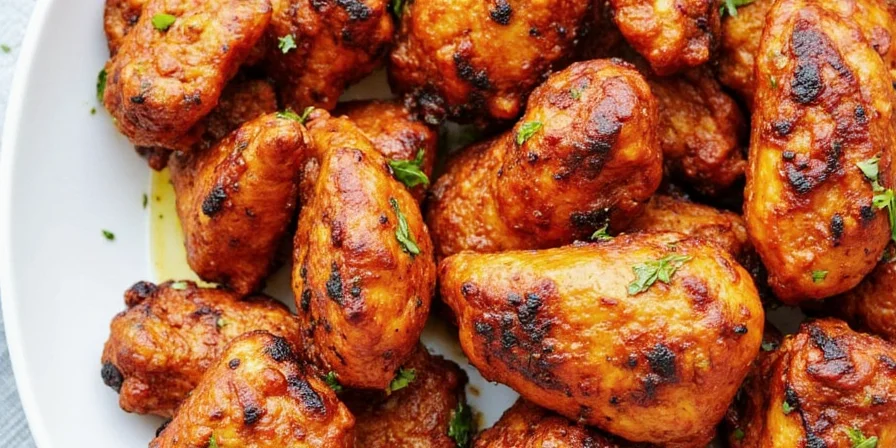









 浙公网安备
33010002000092号
浙公网安备
33010002000092号 浙B2-20120091-4
浙B2-20120091-4